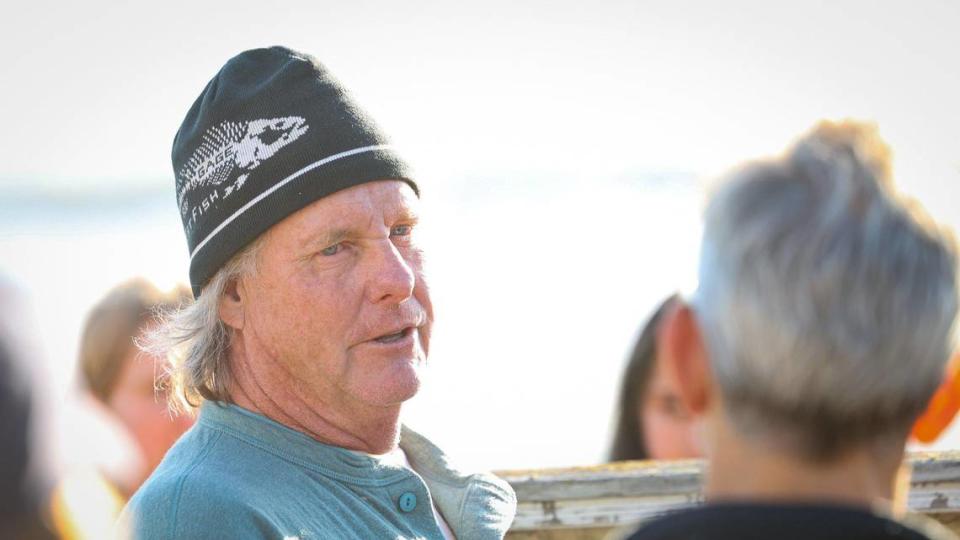SLO County’s old abalone farm is getting a new life. Here’s what’s coming to Cayucos
During a February visit to the old abalone farm north of Cayucos, about 900 concrete tanks once full of bubbling seawater pumped from the ocean to feed valuable red abalone sat dry and empty aside from shiny, leftover shells.
Built beginning in the late 1960s, the abalone farm at its peak between the 1990s to late 2010s raised about 1 million abalones annually that were then processed on site and sold around the world for their meat, considered a delicacy in some areas.
The facility is considered the largest land-based marine aquaculture facility in North America.
Since its closure in 2020, however, the Cayucos abalone farm has sat empty and mostly untouched since the last day water flowed through the tanks.
But there’s a new future on the horizon for the facility, one that its new tenants hope will change the world.
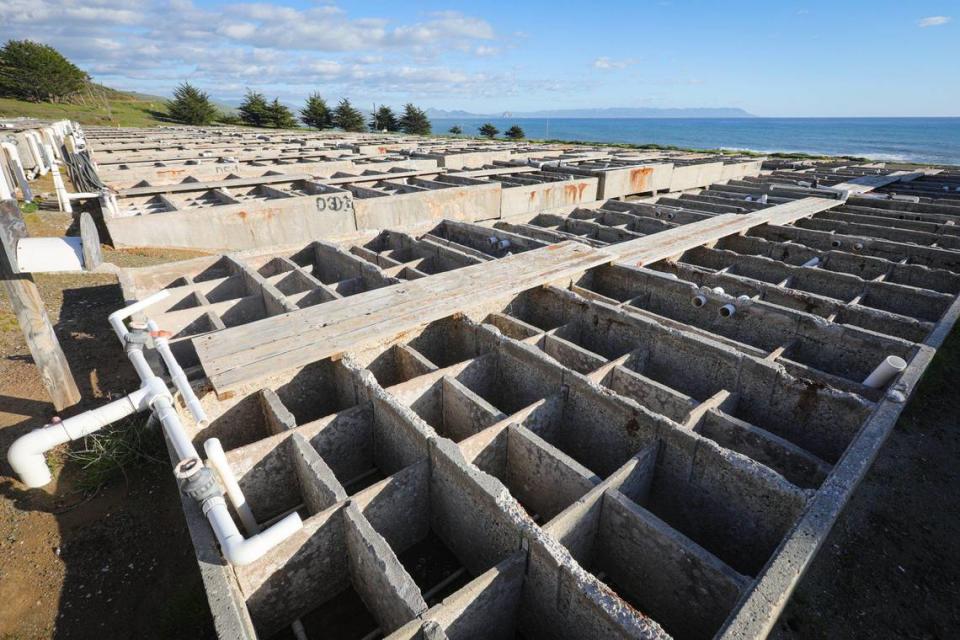
“We would love for this facility to become a world-class center for aquaculture, innovation, conservation, research and education,” said Ben Ruttenberg, director of Cal Poly’s Center for Coastal Marine Sciences. “We really want to make this place a model for how to do sustainable aquaculture the right way and to potentially produce food for very low environmental impact and very low carbon impact.”
“We can also use a facility like this to help rebuild our oceans, help to restore species that have been depleted, and whose populations have been reduced from various human-caused activities,” Ruttenberg added.
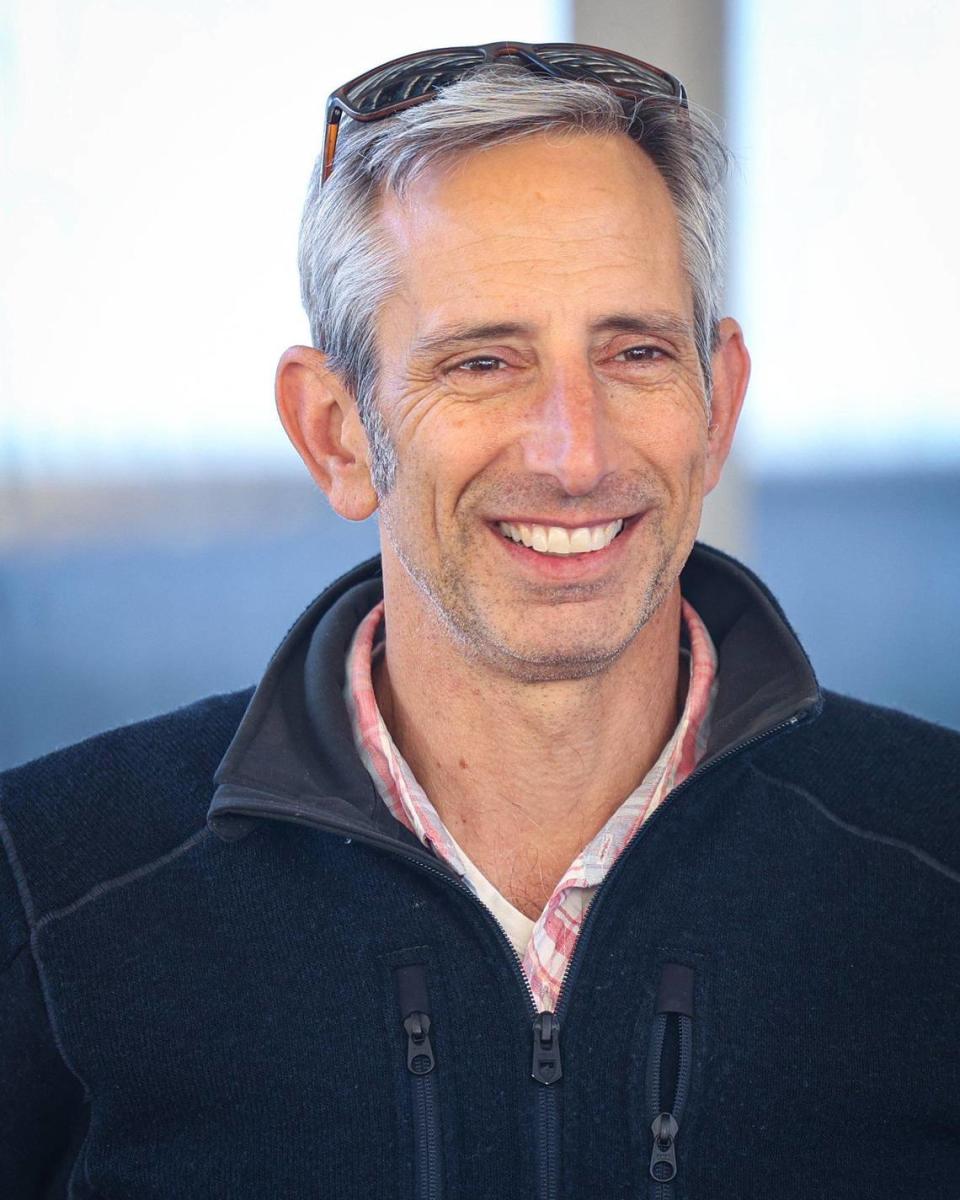
Plans for Harmony Coast Aquaculture Institute
The Harmony Coast Aquaculture Institute, the nonprofit organization that is leasing the facility with support from a private donor, is comprised of Ruttenberg, Creek Lands Conservation’s executive director Don Chartrand, Moss Landing Marine Laboratories’ co-director Mike Graham, and 27-year facilities director of the abalone farm Dale Wiggins.
Their vision is ambitious, the team admitted — but it’s one they believe is greatly needed.
And The Nature Conservancy and National Oceanic and Atmospheric Administration Fisheries Division have granted the institute funding to save the facility and get the vision closer to reality.
“There’s just so much more that we could and really ought to be doing in California to produce environmentally safe and friendly nutrients for the human benefit that would actually benefit the ecosystem as well,” Chartrand said. “And no better place in the state could we actually do that than this facility.”
The existing tanks and seawater pump mean the institute won’t need to get permits from the state or county to build a facility to fulfill its vision: All the bones are already there.
The concrete tanks that used to house the growing abalone remain on site, as well as tanks used as nurseries for baby abalone and the pipes feeding ocean water pumped from the cove below. Other buildings on site used as offices for the abalone farm, and to sort, process and ship the abalone to markets, also remain.
A seaweed farm, dubbed Harmony Coast Sea Farms, has already begun to grow algae in the old tanks, Graham said.
“Seaweed is basically the most environmentally friendly food to produce in the world,” he said.
Seaweed has a “very, very high protein content,” Graham added, but hasn’t been widely used as a protein source for meat alternative products such as Beyond Burgers, Impossible Meat or protein smoothies. Instead, crops such as soybeans and peas have been grown around the world to fulfill that need, he said.
But seaweed can be produced in a way that doesn’t further contribute to the greenhouse gas emissions that are warming the planet, Graham added. In a world that has growing food security concerns due to climate change, seaweed protein could prove to be a lifesaver, he said.
“When all of the development is done on site, the goal is to be the largest single seaweed farm in the world and to have it done on the smallest footprint possible,” Graham said. “We want to become a model for how you can do this sustainably around the world.”
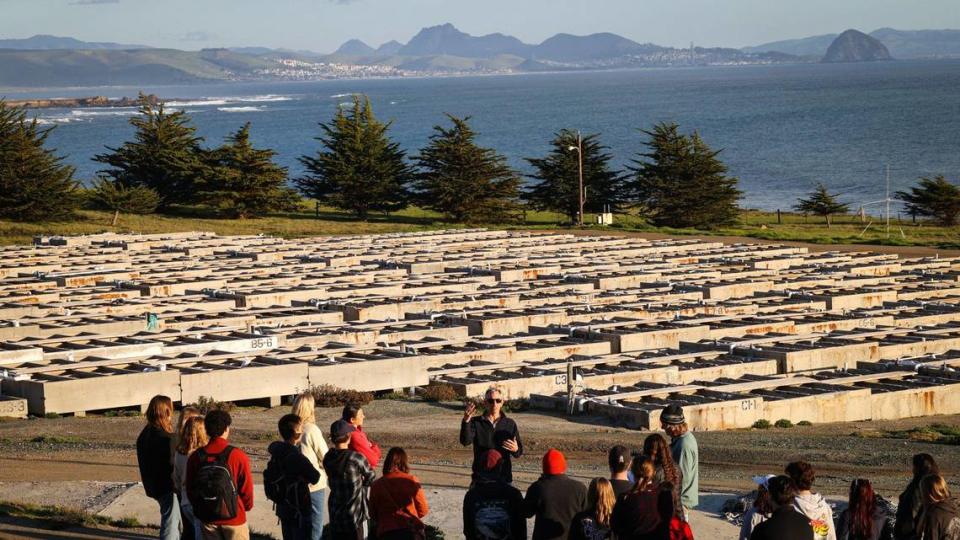
How center could help re-wild the California coast
The commercial seaweed farm is intended to bring in revenue to support some of the other initiatives the nonprofit aims to launch soon.
Chartrand said one of those could grow organisms to help re-wild the California coast.
“We could do this for the California coastal ecosystems with carefully selected organisms that are sort of missing from maybe over-exploitation — like (red) abalone were overfished for decades,” he said. “Or we could help with the recovery of an endangered species like white abalone.”
White abalone, which once populated the California coast in the millions, is now at risk of extinction, according to the NOAA Fisheries.
The marine snail sits at the bottom of the food chain, so repopulating the species will help nearly the entire ocean ecosystem along the coast, Chartrand said. The Harmony Coast Aquaculture Institute received funding from NOAA Fisheries to help try to repopulate the species, he added.
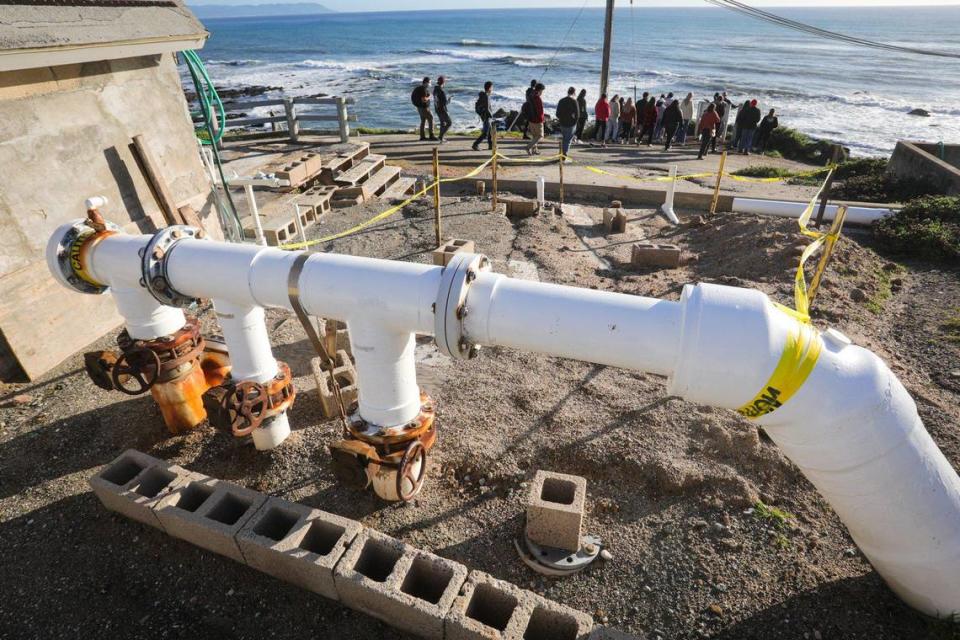
The old abalone farm’s water pump system provides an ideal environment for growing the abalone and other organisms that can only survive in the special conditions provided by the ocean, Chartrand added.
The institute hopes to partner with conservation organizations such as The Nature Conservancy and education institutions such as Cal Poly and Cuesta College, to do the research and re-wilding work at the old abalone farm.
Chartrand noted that a top priority of the institute is to work with the local Northern Chumash and other coastal California tribes to figure out how to incorporate their traditional ecological knowledge into the facility’s operations.
While the institute is largely relying on a private donor to get operations started, it is also accepting donations from the community and hopes to get more funding from state and federal grants in the future.
“This facility pioneered the raising of abalone,” facilities manager Wiggins said. “So for it to be repurposed into all of this is really exciting.”
